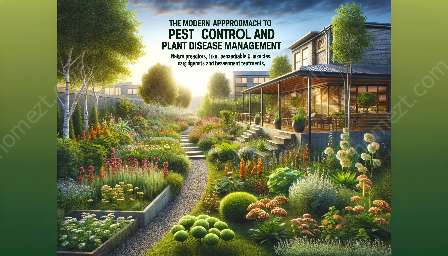Managing nematodes and other soil-borne diseases is crucial for maintaining the health of gardens and promoting plant growth. In this comprehensive guide, we will explore the impact of these pathogens on garden ecosystems and provide insights into effective pest control and plant disease management strategies.
Nematodes: The Hidden Threat
Nematodes are microscopic roundworms that can have a significant impact on garden plants. They thrive in soil and feed on plant roots, causing stunted growth, wilting, and other detrimental effects. Identifying nematode infestations is crucial for preventing widespread damage to garden crops.
The Impact of Soil-Borne Diseases
Soil-borne diseases, including nematode infestations, can lead to devastating consequences for garden plants. These diseases can spread quickly and may persist in the soil for extended periods, posing ongoing threats to plant health. Understanding the characteristics and lifecycle of these pathogens is essential for implementing effective control measures.
Pest Control Strategies for Nematodes and Soil-Borne Diseases
Implementing integrated pest management (IPM) practices is key to controlling nematodes and soil-borne diseases in gardens. Utilizing biological control agents, such as beneficial nematodes, and employing crop rotation and soil amendments can help reduce the prevalence of these pathogens. Additionally, using organic mulches and practicing good sanitation can contribute to the prevention of disease spread.
Managing Plant Diseases in the Garden
Aside from nematodes, various other plant diseases can affect garden crops. Fungal infections, bacterial diseases, and viral pathogens can impact plant vitality and overall garden productivity. By promoting plant resilience through proper cultural practices, such as adequate watering, proper spacing, and balanced fertilization, gardeners can mitigate the risk of disease outbreaks.
Creating a Healthy Garden Ecosystem
An efficient approach to managing nematodes and soil-borne diseases is to establish a robust and balanced garden ecosystem. This involves fostering biodiversity, promoting beneficial soil microorganisms, and cultivating healthy soil structure. By nurturing a harmonious environment, gardeners can naturally suppress the prevalence of harmful pathogens and minimize the reliance on chemical interventions.
Conclusion
Recognizing the impact of nematodes and soil-borne diseases in gardens is essential for maintaining the vitality of plants and ensuring sustainable garden productivity. With a holistic understanding of pest control and plant disease management, gardeners can adopt proactive measures to address these challenges. By prioritizing the health of the garden ecosystem, they can create thriving and resilient gardens for years to come.



















